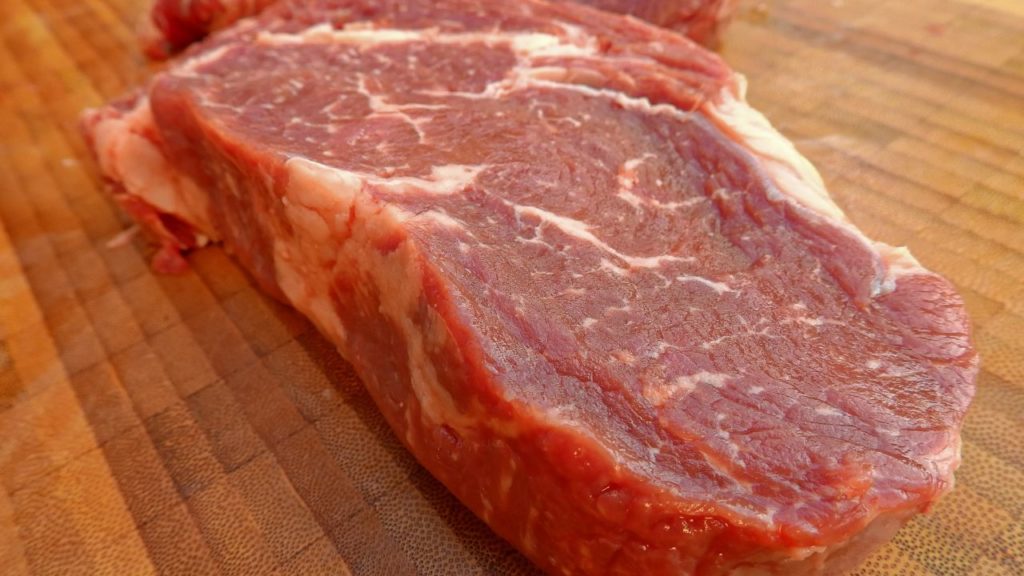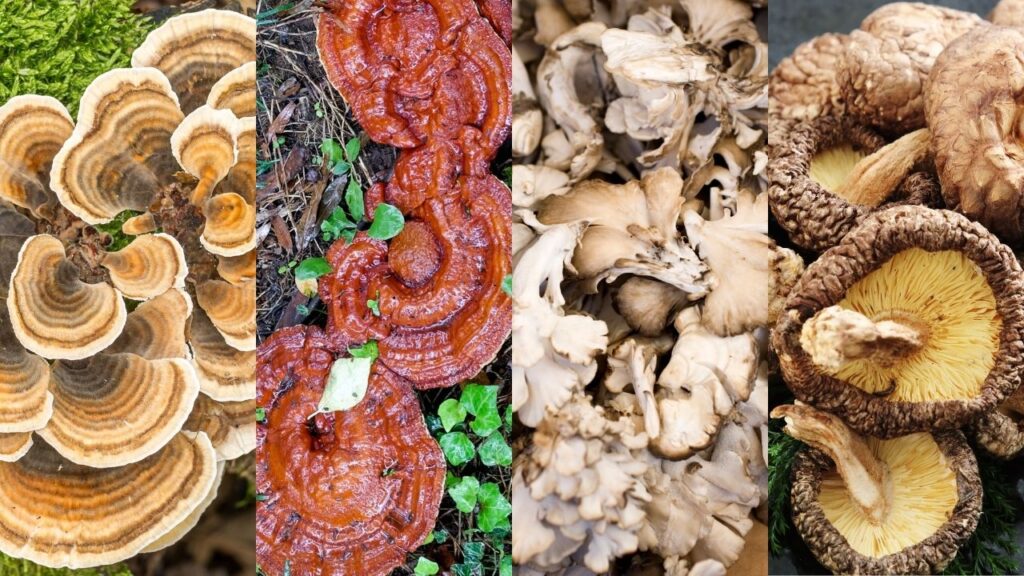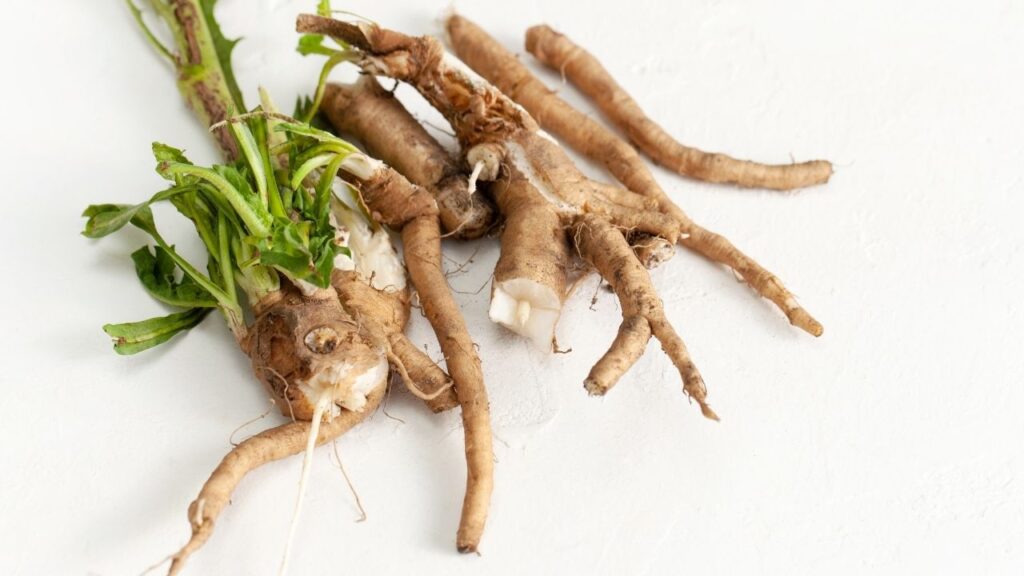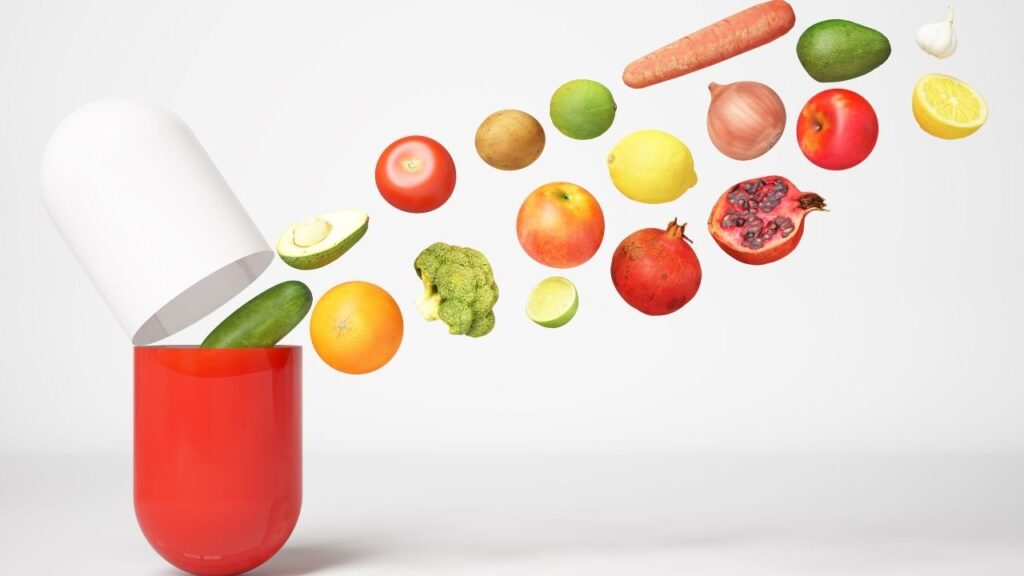Glutamine is an alpha-amino acid naturally found in your dog’s body, commonly used to help dogs regain weight or heal their digestive tract. When depleted through stress or illness, increasing its levels with a supplement might be helpful. So how do we use glutamine for dogs with cancer? Even though research suggests glutamine offers many benefits, it’s probably most useful for managing side effects, not as a direct “anti-cancer” supplement.
Key Takeaways
- Glutamine has mixed evidence for fighting cancer directly; however, as an essential amino acid found naturally in many foods, it seems to have an overall beneficial effect for the side effects of many cancer types.
- Glutamine may be a good supplement to help counteract the side effects of chemotherapy, like muscle wasting and immune suppression.
- Glutamine is often used to prevent and help treat stomach issues, like damage in the gastrointestinal tract from viral illnesses or during chemotherapy.
- Essential amino acids like glutamine are important for healing tissues. Diets rich in glutamine (protein) help dogs recover from injury, improve nitrogen levels, promote a healthy intestinal system, assist in proper bodily functions, and reduce time spent in the hospital.
What Is Glutamine?
Glutamine is an alpha-amino acid that helps make proteins in the body.1 It is a conditionally essential amino acid,1,2 meaning that your dog’s body produces it naturally. However, periods of high stress may reduce this ability, so supplementing the diet might be necessary. If gut healing is in order, for example, during chemo treatments, veterinarians might recommend glutamine for dogs with cancer.
Two Forms of Glutamine
Glutamine comes in two forms: L-glutamine and D-glutamine. The more important one is L-glutamine, which is used in biological processes and can be found in fruits and veggies. D-glutamine is not a useful supplement because the body does not use it.2
Glutamine in the Diet
Glutamine is naturally found in many types of food.2 The densest amounts of glutamine are typically found in protein-rich foods, like:1
- beef
- chicken
- dairy
- fish
- eggs
- beans
- beets
- brussels sprouts
- cabbage
- carrots
- celery
- kale
- miso
- papaya
- parsley
- spinach
- wheat
Examples of the percentage of protein made up of L-glutamine in food include 4.4% in eggs, 4.8% in beef, 8.1% in skim milk, 9.1% tofu, 11.1% in white rice, and 16.2% in corn.2
What Glutamine Does in the Body
Glutamine plays an important role in creating proteins and lipids (fats).
It is also involved in generating cellular energy, donating nitrogen and carbon for use in various cell cycles, and maintaining the integrity of healthy intestines.1,2,3
Glutamine is a very common supplement. If a glutamine supplement is needed for your dog, you’ll find a wide range of products packed with L-glutamine online.
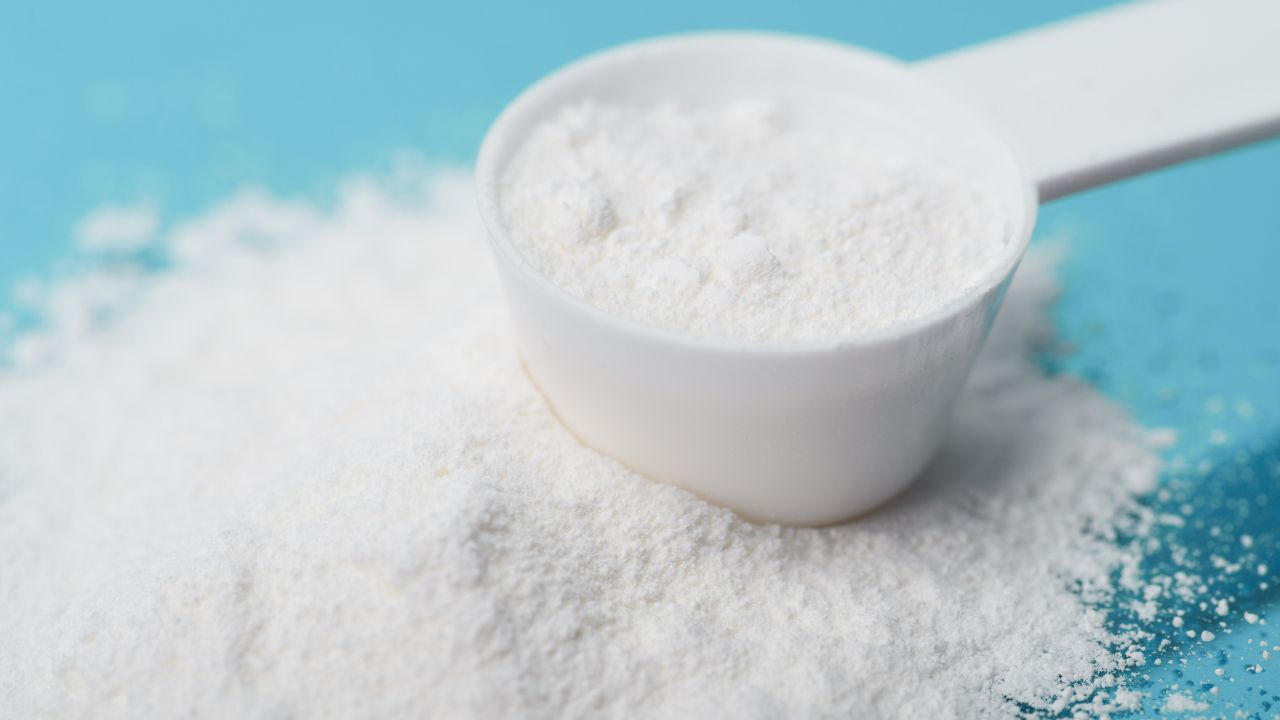
Does Glutamine Help or Hurt Cancer?
Glutamine is assumed to function in dogs similarly to how it functions in humans, so evidence of its efficacy in humans can likely be applied to our canine companions.
There’s some mixed messaging about the role glutamine plays in cancer.4
Evidence Glutamine Helps Cancer Cells
For example, some research suggests that cancer cells use the carbon and nitrogen available from glutamine to sustain themselves and proliferate.2,3 Therefore, it’s been suggested that excess glutamine may fuel the growth of tumors.
In fact, some anti-cancer therapeutics are specifically designed to stop cells from using glutamine.3 Using such strategies to alter and stop glutamine metabolism has been shown to decrease the growth of breast, liver, and kidney cancer in humans, as well as T-cell lymphoblastic leukemia.2
Versus Evidence Glutamine Fights Cancer Cells
On the other hand, other studies indicate that the ability of glutamine to stimulate the immune system by fueling white blood cells and intestinal cells makes it a vital cancer-fighting component.
Glutamine has been found to improve survival rates and reduce medical costs for critically ill patients.2
A diet high in glutamine may also:2,3,5
- Support individuals recovering from injury
- Improve nitrogen levels in the body
- Promote a healthy intestinal system
- Maintain the level of glutamine necessary for proper bodily function
- Reduce time spent in the hospital
All of the above supports people (and dogs) fighting cancer.
Evidence for Using Glutamine for Dogs with Cancer
When given to dogs with enteritis (inflammation of the stomach, small intestine, or colon), glutamine caused significant elevations of the immune cells: total white blood cells, neutrophils, and lymphocytes. Glutamine ultimately supported the dogs through the recovery of their illness.6
Mixed Evidence, But Probably Overall Helpful
It could be that glutamine is detrimental only for specific types of cancer, which may help explain the mixed results observed in the literature.2,3
As with so many other supplements and treatments, much more research is needed to understand better its true efficacy in treating cancer.
In his book The Dog Cancer Survival Guide, Dr. Demian Dressler recommends glutamine for dogs undergoing chemotherapy..
Common Uses for Glutamine
Glutamine is required for the necessary biological functioning of many bodily pathways,7 and may be beneficial for conditions such as parvovirus and bowel disease in addition to cancer.8,9
Immune System and Chemotherapy Support
Increased glutamine is thought to support and activate the immune system while also increasing tumors’ sensitivity to chemotherapy drugs.10 (Meaning it makes those drugs more effective.)
It may be particularly useful for individuals, and potentially dogs, struggling with cancers of the intestine and cancers of the liver.7
Chemotherapy Side Effects
In cancer, glutamine is commonly used to help counteract some negative side effects associated with chemotherapy, including weakness, muscle loss, numbness, tingling sensations, nausea, and diarrhea.3
It can also protect against peripheral neuropathy (weakness, numbness, or pain caused by nerve damage) and mucositis (soreness and inflammation of the mouth or stomach).3
Glutamine can also provide benefits for some specific chemotherapy drugs. For example, glutamine may negate (reduce) fluorouracil-induced toxicity of the gastrointestinal tract and FOLFOX-induced diarrhea.3
Glutamine has been shown to help with the side effects of chemotherapy and may help reduce the toxicity of chemotherapeutic drugs, such as methotrexate (MTX).11
Glutamine’s Side Effects for Dogs
Studies on glutamine are limited, so it is difficult to understand potential side effects for dogs completely.8 So far, it appears to be very safe.8,9
Side effects such as tissue swelling have been noted in humans.8
The safety of sustained glutamine use over the long term is not well known and will require more studies to determine if the supplement’s long-term administration is harmful.2,7
Can Glutamine Be Given With Other Supplements or Drugs?
As always, you should consult with your veterinarian to ensure that glutamine can be given safely with the other therapeutic components of your dog’s cancer treatment plan.
However, glutamine is broadly considered safe when taken at appropriate doses.9
When to Not Use Glutamine
Glutamine will likely not be a good fit for your dog if they have severe liver disease or behavioral disorders.8
It should also not be given to dogs who experience seizures and are on anticonvulsant medications, as it might lessen the effect of seizure medication.4
It may further not be advised for dogs that are pregnant or nursing.8
How to Give Glutamine to Dogs with Cancer
Glutamine typically comes in powder, capsule, or tablet form. It can be given as is or mixed into your dog’s food or drinking water.8
Oral supplementation of 0.5 grams per kg of weight a day for 14 days was safe for dogs and successful, according to one study.6
What If I Miss a Dose?
You can give the dose to your dog if you remember soon after missing it. However, if an extended time has passed, then it’s recommended that you skip the missed dose and carry on as usual at the time of the next dose.8
You should not give your dog more than the allocated amount to compensate for the missed dose.8
Storage and Handling for Glutamine
Follow the directions on your glutamine product. Most will likely tell you to store it at room temperature in an air-tight container away from light sources.8
Our Take on Glutamine
Based on its ability to aid in recovery from injury or surgery and its potential benefits in helping your dog cope with chemotherapy, glutamine is worth asking your vet about. This is particularly true if your dog has muscle wasting or gastrointestinal upset. The general stress experienced during cancer treatments may lower the body’s natural glutamine levels. Using a supplement at recommended doses is generally safe.
However, research remains unclear regarding its usefulness for preventing or treating cancer. Studies are limited, and results are mixed. More research on glutamine for dogs with cancer is necessary before we fully understand the role glutamine plays in canine cancer.
- Cruzat V, Macedo Rogero M, Noel Keane K, Curi R, Newsholme P. Glutamine: Metabolism and immune function, supplementation and clinical translation. Nutrients. https://www.ncbi.nlm.nih.gov/pmc/articles/PMC6266414/. Published October 23, 2018. Accessed December 11, 2022.
- Tinsley G. Glutamine: Benefits, Uses and Side Effects. Healthline. January 13, 2018. Accessed November 29, 2022. https://www.healthline.com/nutrition/glutamine.
- Nguyen TL, Durán RV. Glutamine metabolism in cancer therapy. Cancer Drug Resist 2018;1:126-138.
- Dressler D, Ettinger S. Chapter 11, Managing Side Effects section on Glutamine. In: The Dog Cancer Survival Guide: Full Spectrum Treatments to Optimize Your Dog’s Life Quality and Longevity. Kihei, Hawaii: Maui Media, LLC; 2011.
- Limberg VS, McClellan JL. Glutamine, cancer, and its therapy. Am J of Surgery. 1996:172(5):418-424.
- Rodrigues AKS, Silva GB, Almeida TLAC, Borba NM, Cordeiro Manso HECC, Manso Filho HC. Effects of glutamine and glutamate supplementation in dogs with hemorrhagic enteritis. Comp Clin Path 2017;26:315-320.
- No author. Glutamine. Memorial Sloan Kettering Cancer Center. No publication date available. Accessed December 5, 2022. https://www.mskcc.org/cancer-care/integrative-medicine/herbs/glutamine.
- Gollakner R. Glutamine. VCA Animal Hospitals. No publication date available. Accessed December 5, 2022. https://vcahospitals.com/know-your-pet/glutamine.
- Marsden S, Messonnier S, Yuill C. Glutamine. Treatwell. 2009. Accessed December 5, 2022. https://learn.treatwellpetcare.ca/article/52-glutamine.
- Choi YK, Park KG. Targeting glutamine metabolism for cancer treatment. Biomol Ther (Seoul) 2018;26:19-28.
- Rubio IT, Ca Y, Hutchins LF, Westbrook KC, Klimberg VS. Effect of glutamine on methotrexate efficacy and toxicity. Ann Surg 1998;227(5):772-778.
Topics
Did You Find This Helpful? Share It with Your Pack!
Use the buttons to share what you learned on social media, download a PDF, print this out, or email it to your veterinarian.
